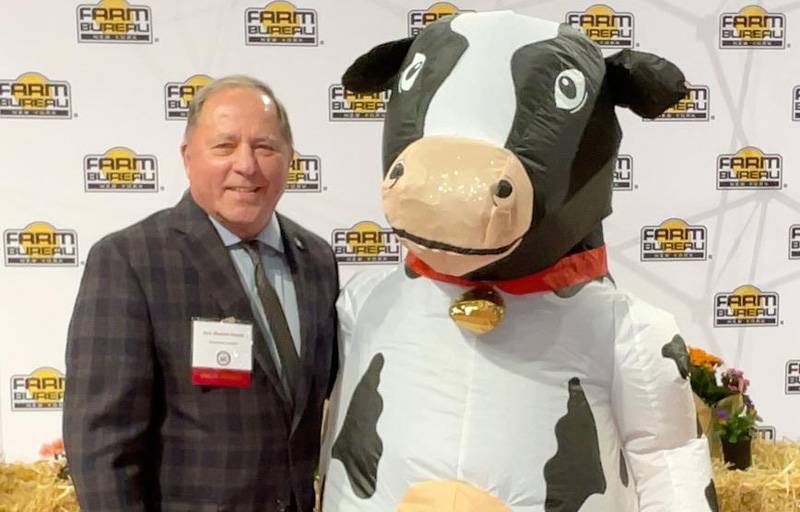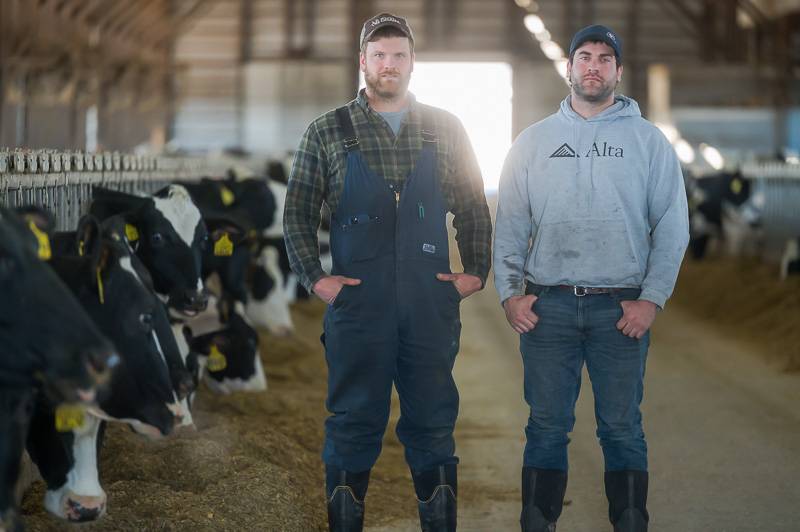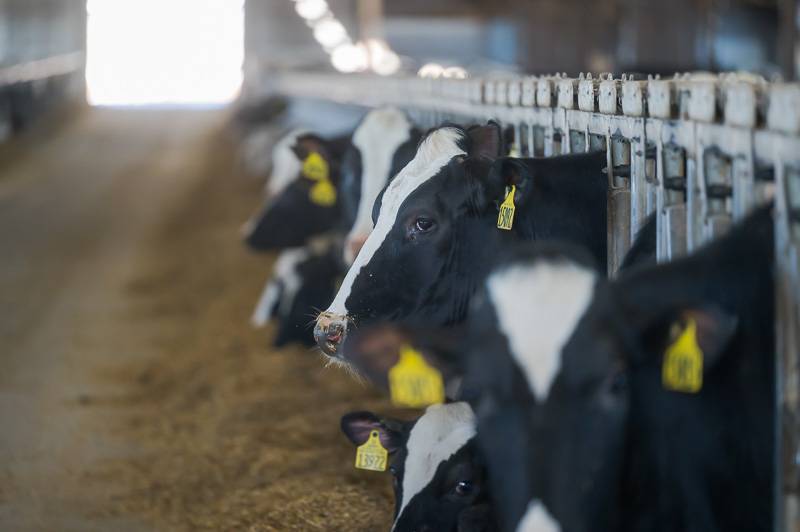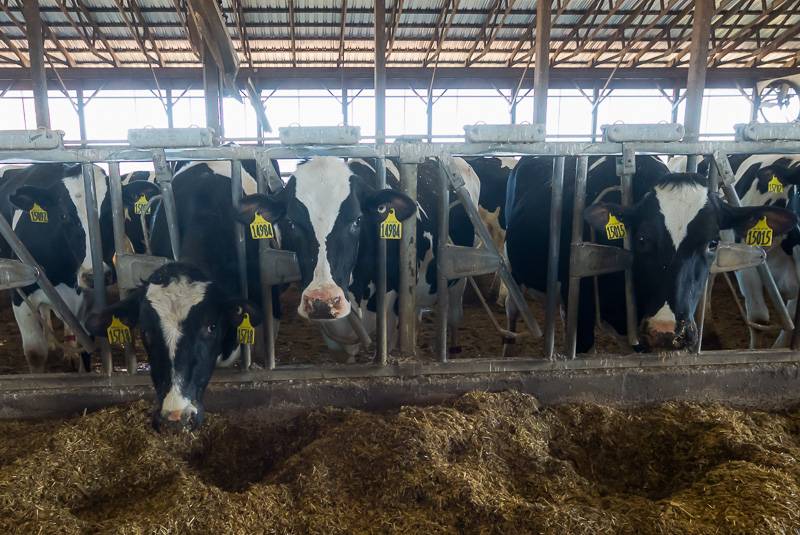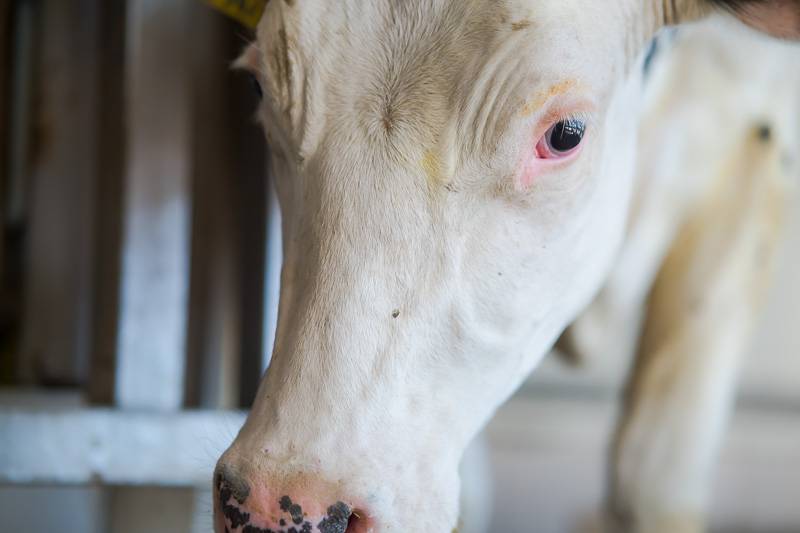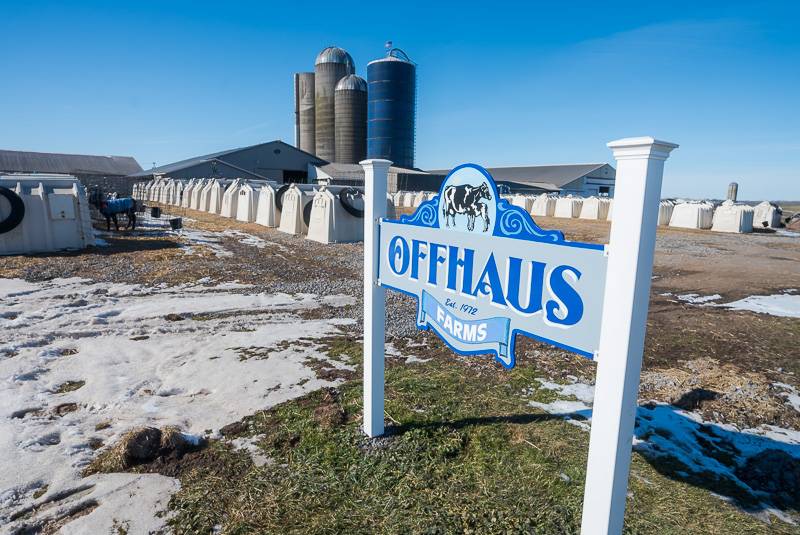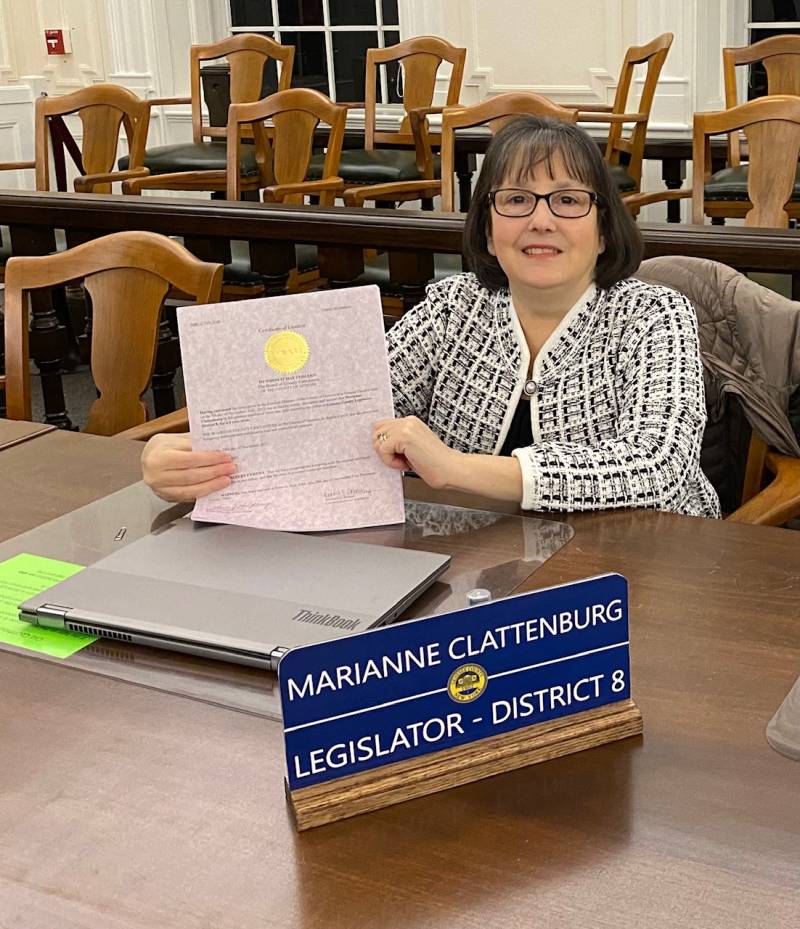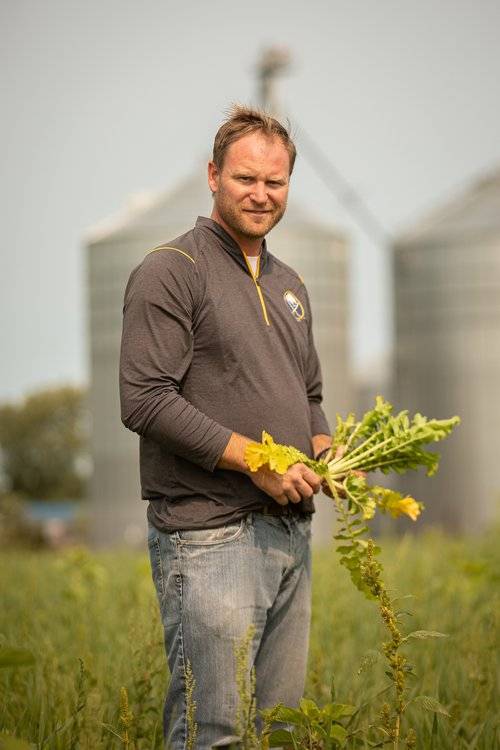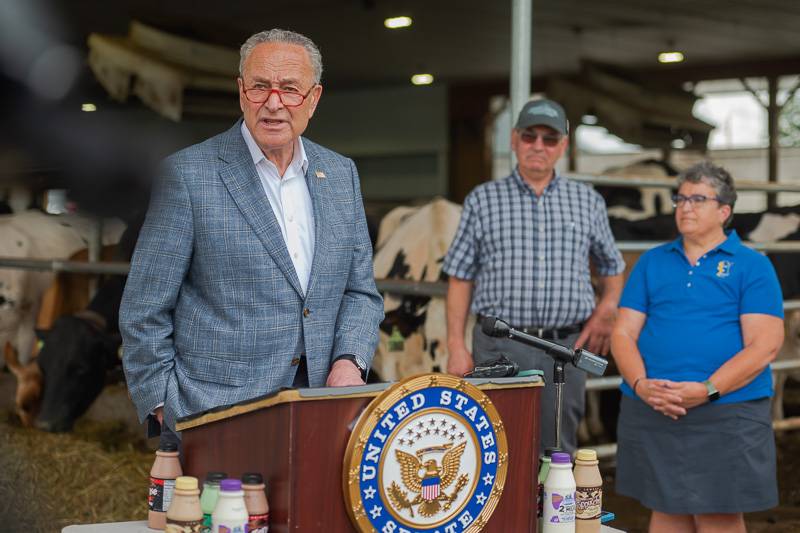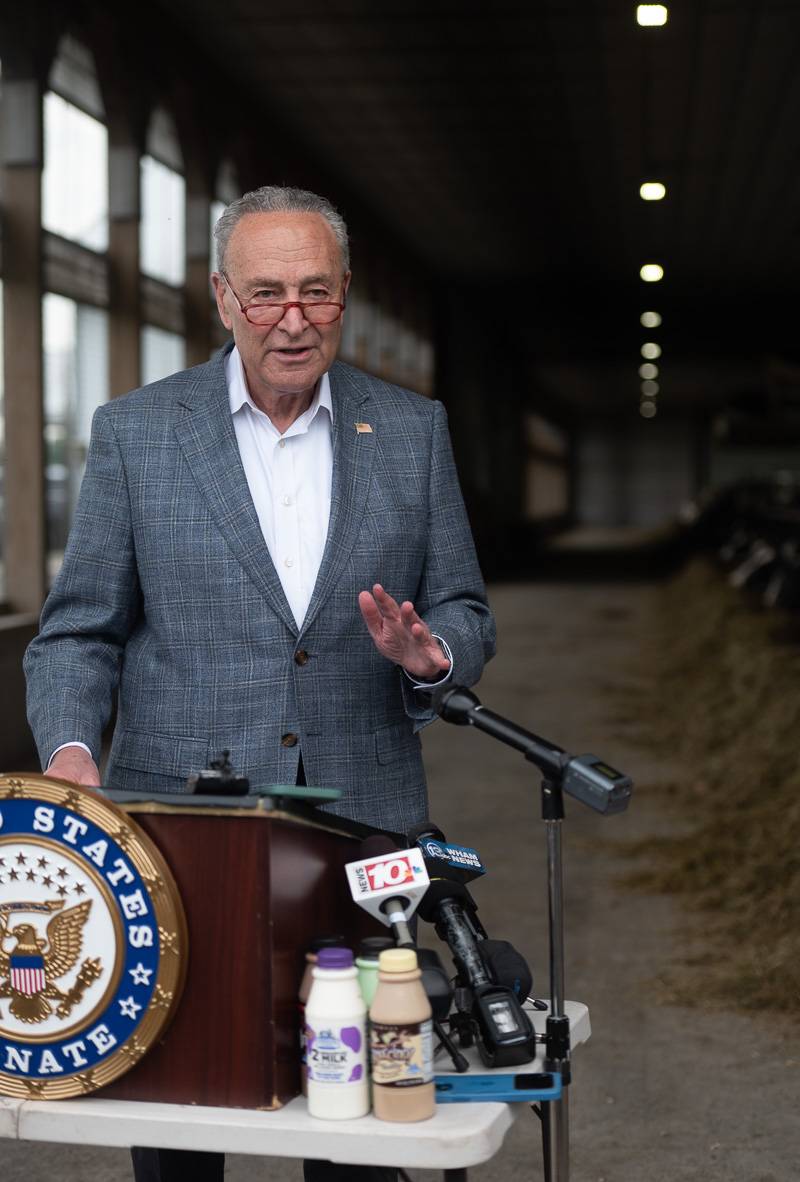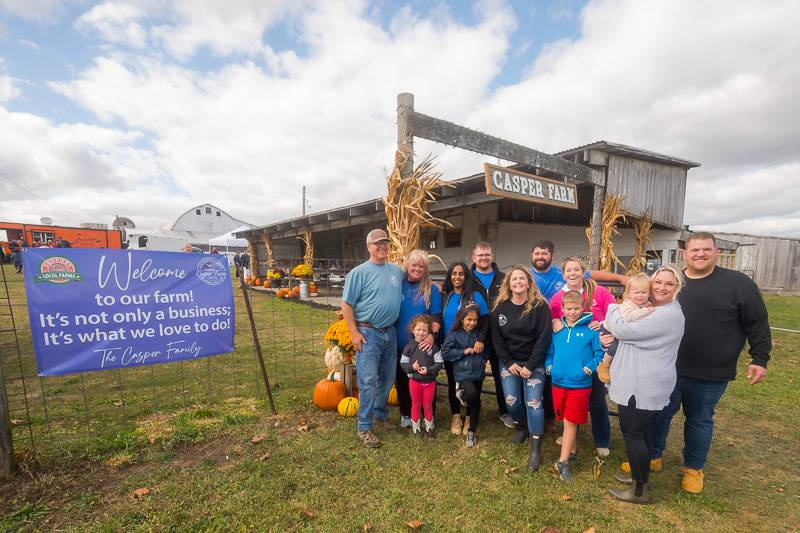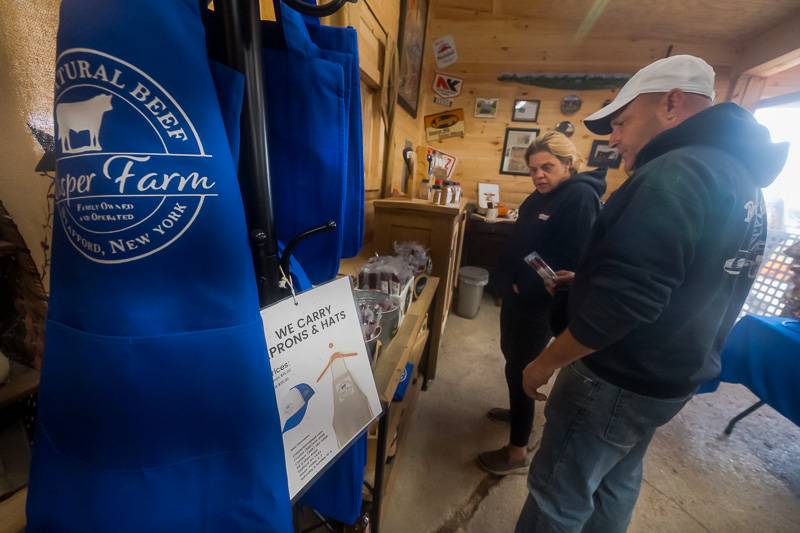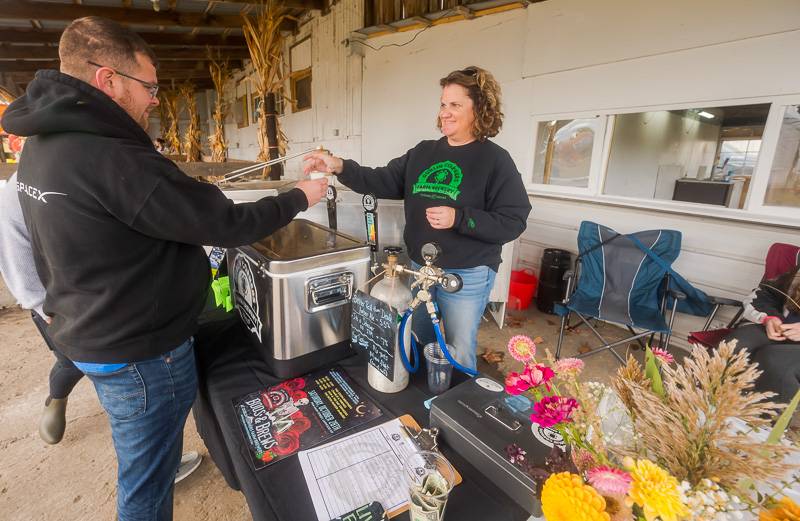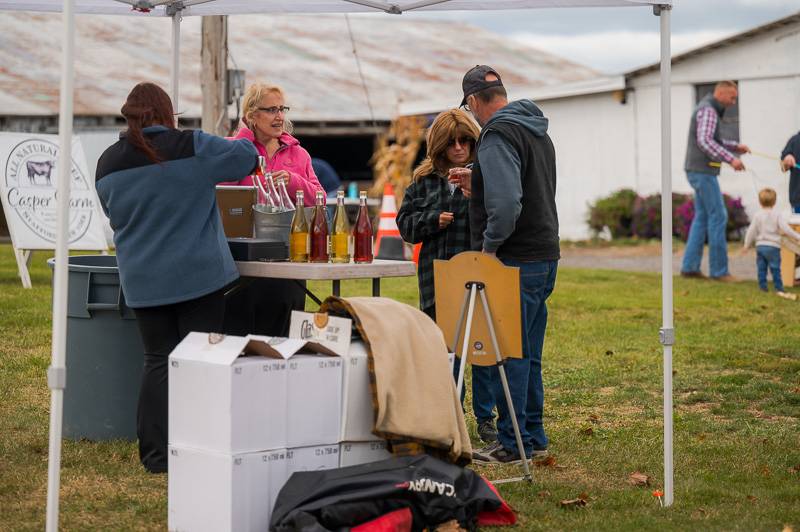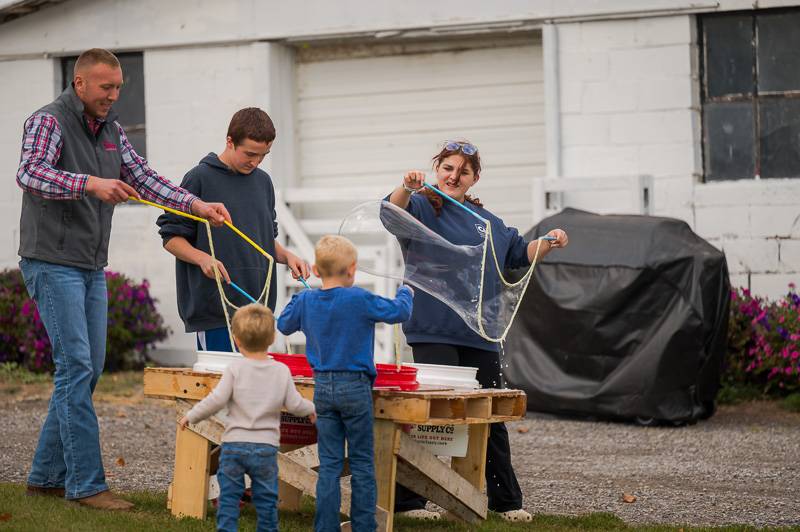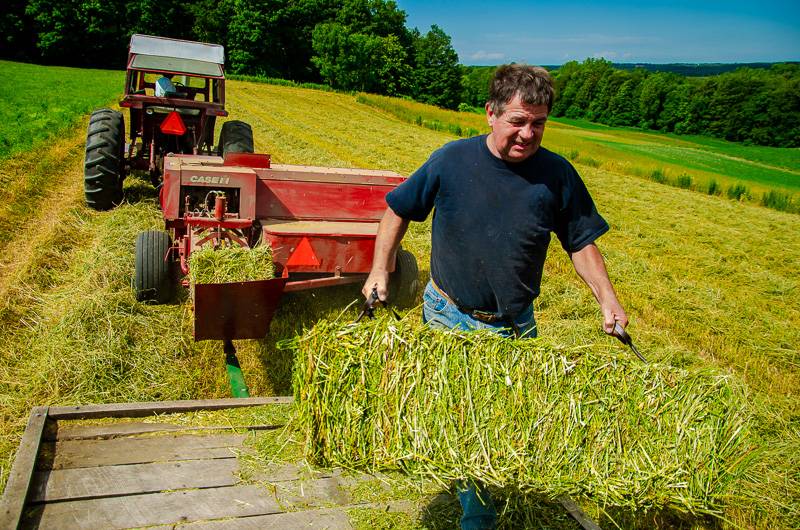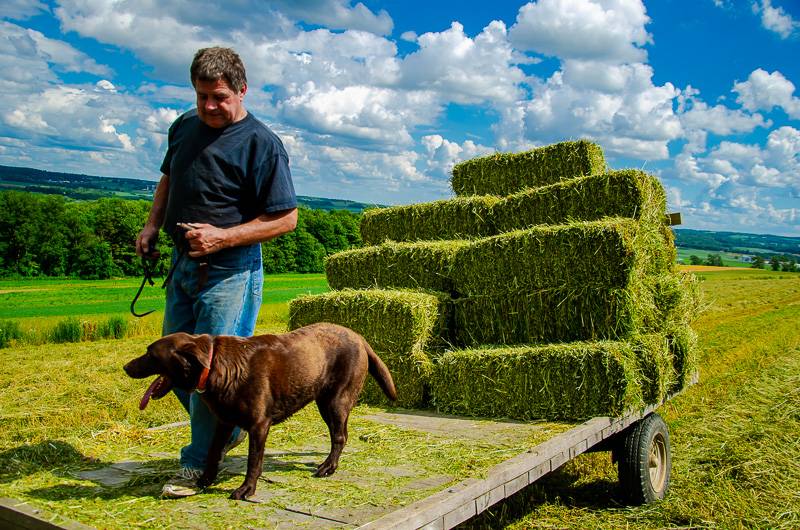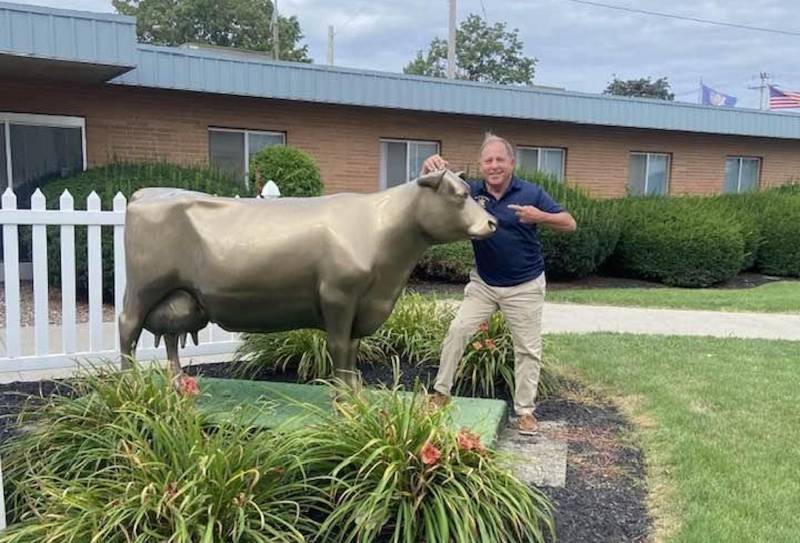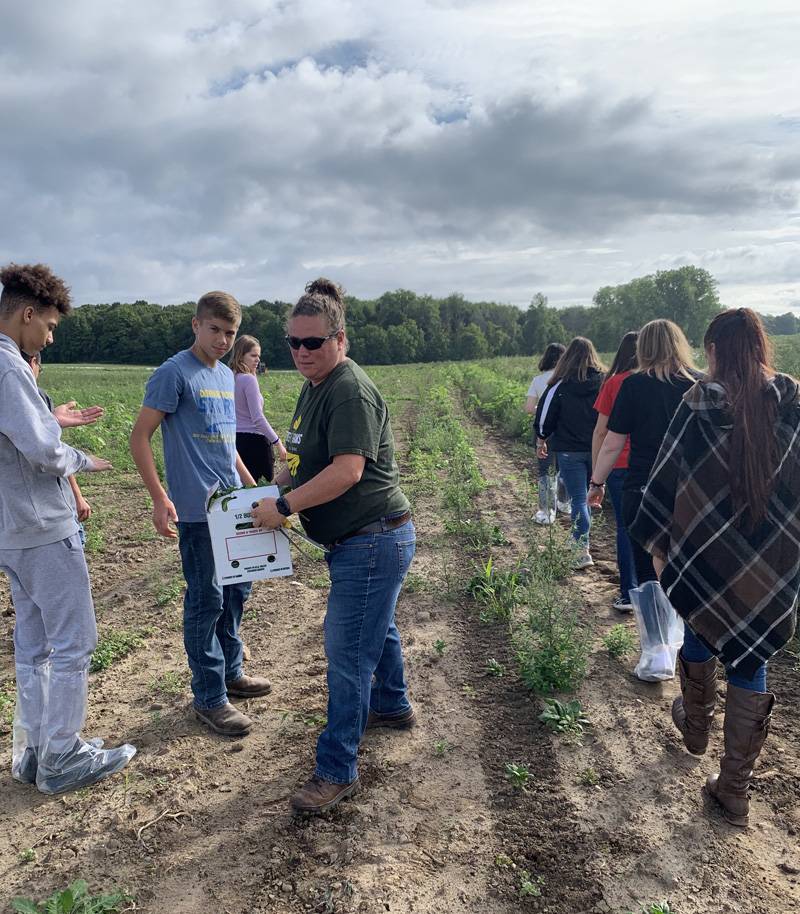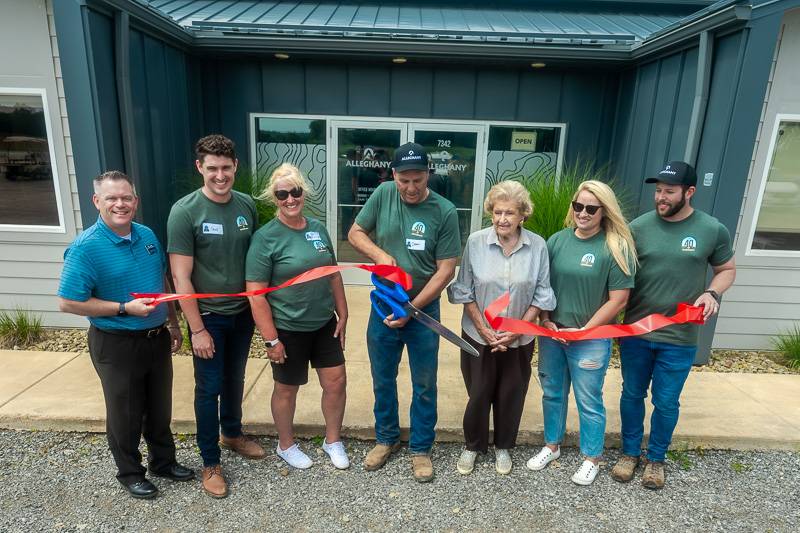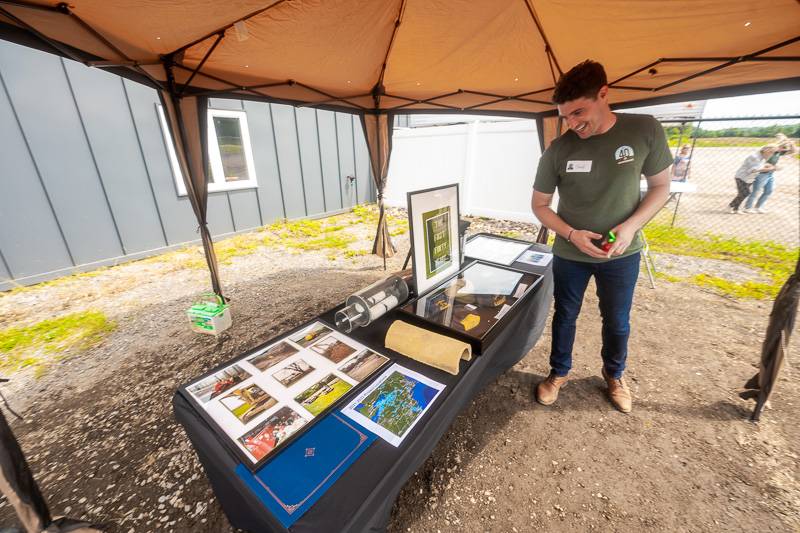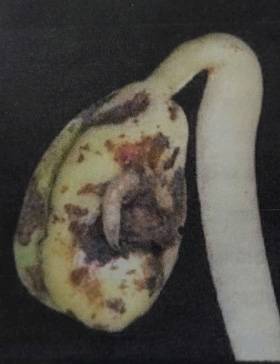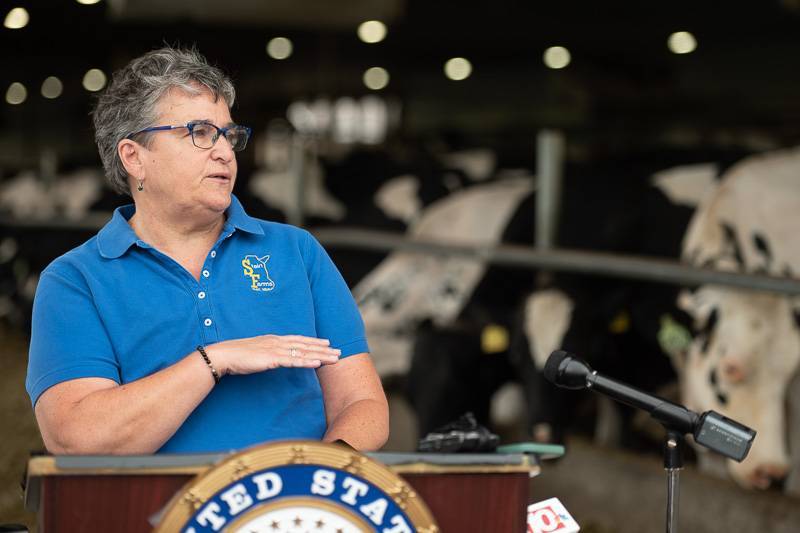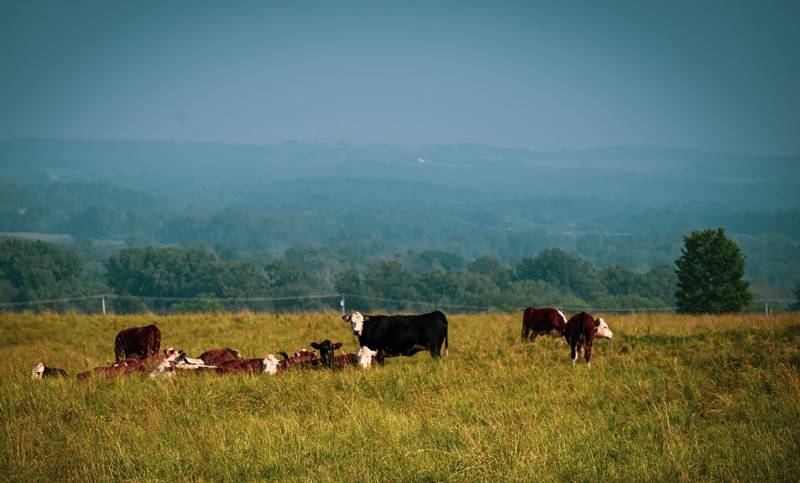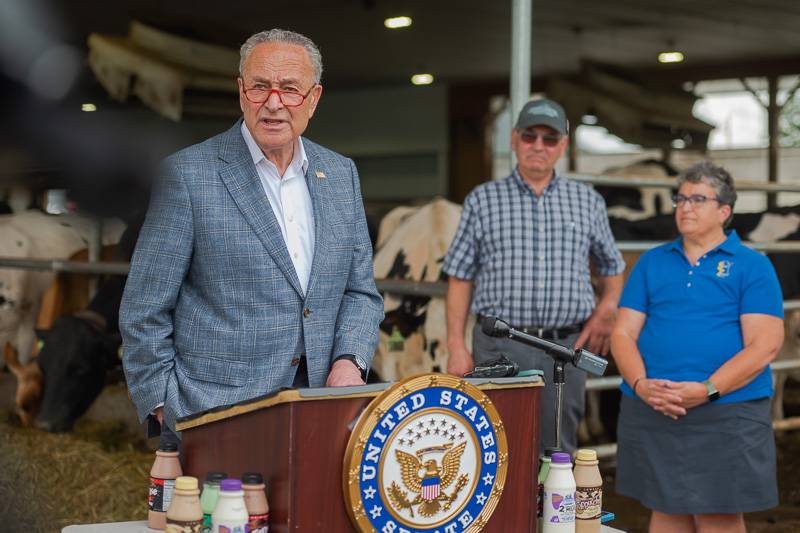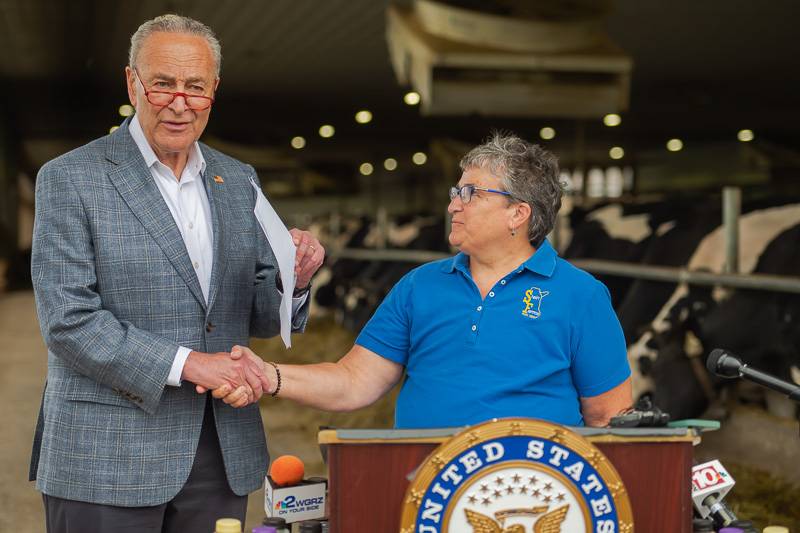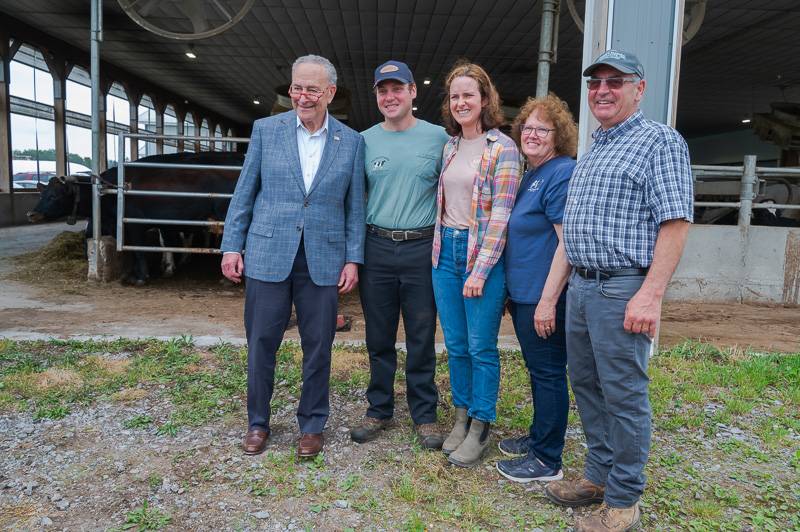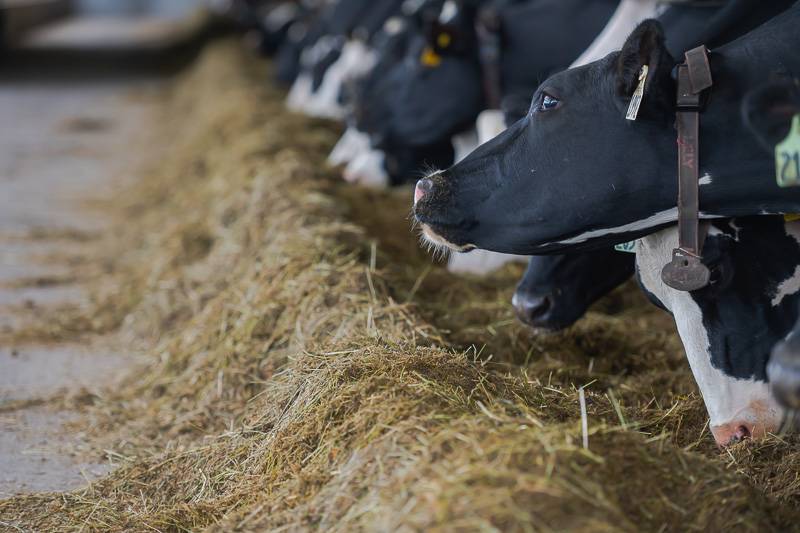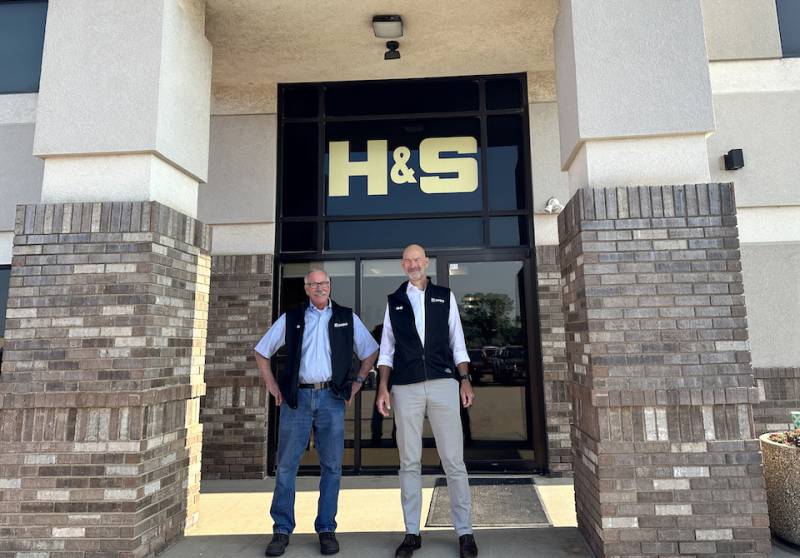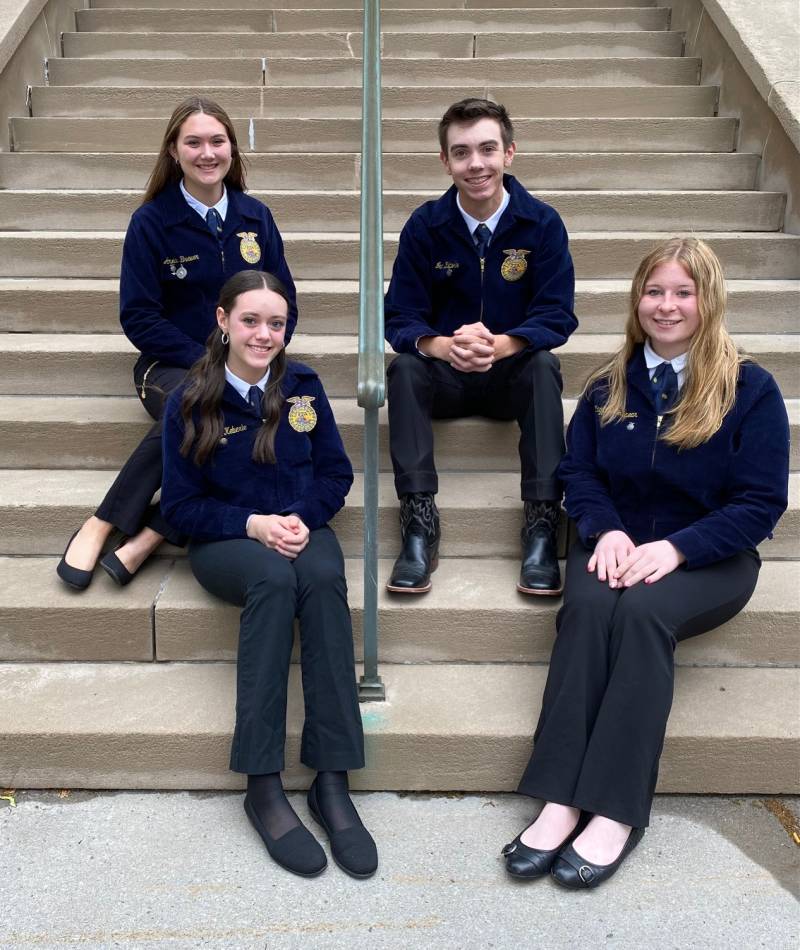Agriculture highlighted for 'vital role' it plays in Genesee County
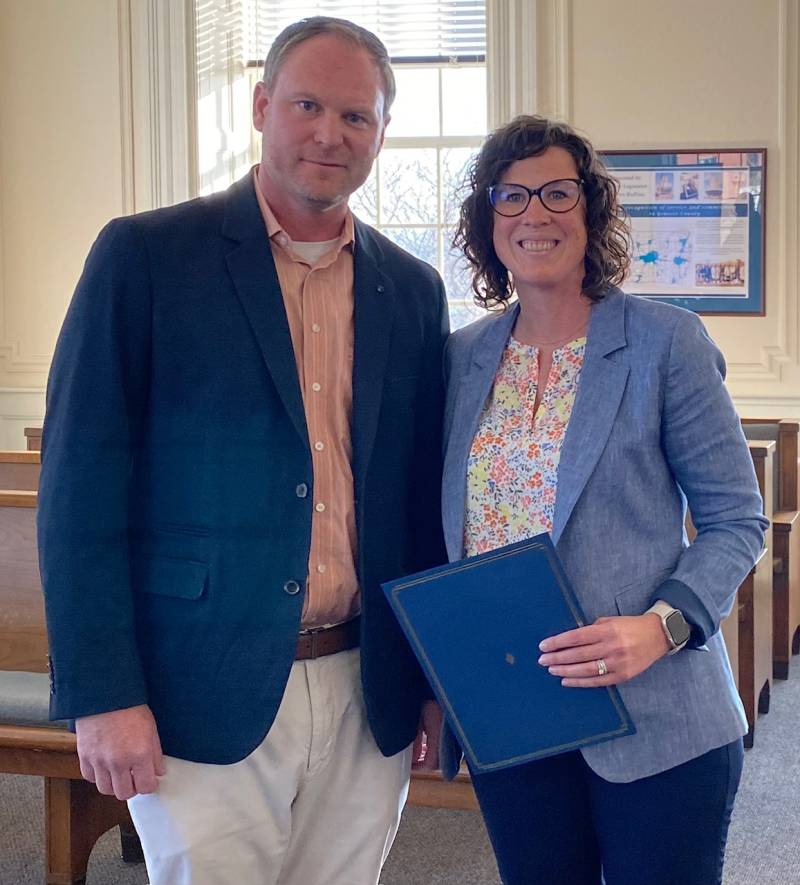
Danielle Cummins hopes that when folks drive down the rural roads of Genesee County, they can take in all that goes into those rows of crops growing in the nearby dirt and how they are so integral to the makeup of the county’s number one industry, especially amidst the labor challenges of limited work hours and competitive pay of nearby states.
Cummins represented Genesee County Farm Bureau as of member of the board Wednesday during a special presentation for Agriculture Month.
“I hope, when you drive down our back roads that you see more than just a green field, you sort of respect and appreciate what's out there and what it takes for the men and women to do that job, to do it well,” she said. “You know, we're blessed with great resources in this county. And I think we've got great stewards of the land that do those things that we can continue to have the thriving agricultural economy that we have.”
According to the 2022 Agriculture Census, there were some 435 farms in the county and a market value of nearly $360 million of agriculture items produced in Genesee County, with more than $193 million of that being milk-related products sold and $11 million from farm-related sources.
Cummins emphasized that point, as “our industry touches so many things,” she said.
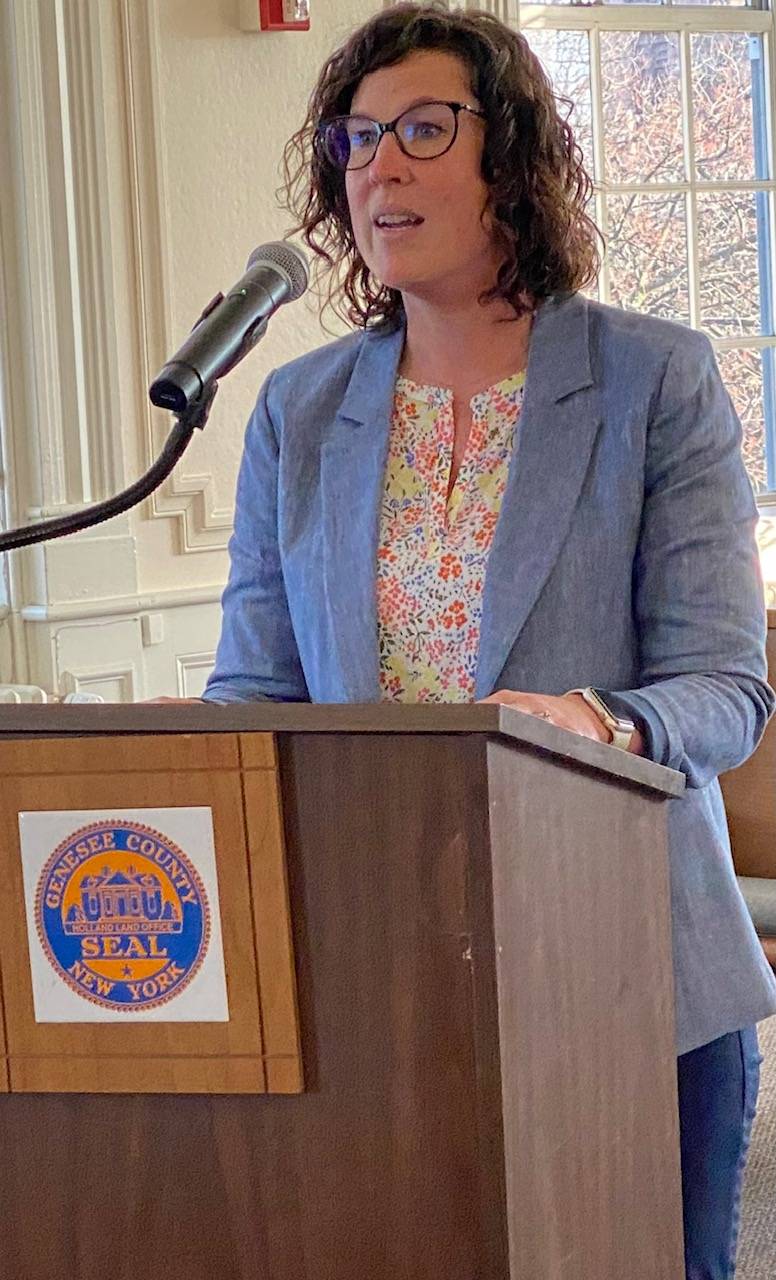
“You can say you drive by cornfields, and we're blessed in this area where we've got a bunch of dairy farms, and we grow more than just your row crops. We grow a bunch of vegetables and fruits in this area. So we're blessed to sort of be a grocery store in our own backyard,” she said. “And this recognition, I think, really helps bring attention to the things that the men and women in the ag community do. And then the support roles that are able to exist because of that: the one-off businesses, the farm credits, the input suppliers, the machinery dealer is here. You know, there's so many other jobs that the agriculture industry, the farms support that we're really lucky to have in this county.”
New York State has mandated cumulative labor law changes for farm workers, reducing the number of overtime hours each year until it reaches a maximum of 40.
How are farms dealing with this?
“I think people will make adjustments as they see fit for their own labor force, whether that means they're cutting back overtime hours or trying to change how they're managing their labor force. But when you have a somewhat tumultuous economy that's very volatile in terms of crop pricing, and what we're getting for grain, certainly what you're seeing in the milk market right now when we have these labor issues, it’s just another variable to try to solve for when things may already be difficult,” she said. “So even in good times, this is a hard problem to solve, for labor is a big issue in this area, specifically because of the crops that we grow. Seasonal help doesn't help a dairy farm. And seasonal help may be useful if you're harvesting onions or a more labor-intensive crop like cabbage, just to name a few.
“And there are certainly programs in place that help get labor here, but they're not perfect by any stretch. So there there are some challenges. And I can only speak for the operations that I have seen. There's some questions that need to be answered. But it's a tough thing to implement,” she said.
You have said that you're not serving as the official spokesperson for all issues, but what can you say on the record about the current immigration issue and its effect on farm labor and related challenges?
“Labor challenges, like the overtime law, do impact us at a state level in terms of competing to attract labor to come work in our state when you've got Pennsylvania that doesn't have the same restrictions," she said. "So somebody who was willing to do the same work here or in Pennsylvania can make a heck of a lot more money there. They're gonna go where the money is. So we are at a competitive disadvantage.”
And because farmers are likely going to have to pay more and do less with what they’ve got for labor hours, she said, “maybe that means our cost of production goes up.”
“And that's another financial obligation and challenge that we have to solve,” she said.
Are farmers tempted to begin the planting process with temperatures climbing already in mid-March?
“This early spring sure makes it tempting. I think we heard that (at) our county meeting last night. I think it's pretty tempting to try to get your green peas in, whether they like that cold, cool weather and wet weather, we've certainly got it right now. But what an opportunity for a dairy farm to be able to go out and spread manure early and not have to worry about dealing with holding it until the weather really breaks,” she said. “So, a great opportunity for people to get out in the field and start and advance, getting ahead of that spring chore of fitting the fields and getting the ground ready and getting your equipment pulled out of the shop. But the fact that it's mid-March feels a little early, but it's it feels a lot later.”
The county Legislature presented Cummins with a proclamation to celebrate Agriculture Month — with good timing, given that the 20th annual Celebrate Agriculture Dinner is this weekend. Cummins also considers that event, meant to highlight the local bounty that goes into the dinner menu, in and of itself “truly an accomplishment.”
Legislator Christian Yunker, a member of the farming community himself, read the proclamation:
WHEREAS, Agriculture Month is celebrated each year in the month of March. This serves as a time to recognize and appreciate the vital role that agriculture plays in our local communities, and
WHEREAS, Genesee County’s designation of an agricultural district consisting of vast, rich lands necessary for the 176,887 acres of farmland and 141,047 acres of cropland, and
WHEREAS, Genesee County farmers, ranchers, and community members involved in agriculture work tirelessly to ensure that the production of food, dairy products and other essential foods contribute to the well-being and prosperity of our residents, and
WHEREAS, according to the Agriculture Census in 2022, there were approximately 435 farms within Genesee County which produced $359,698,000 market value of agriculture products sold, which $193,820,000 being milk related products sold, and the total income from farm related sources were $11,105,000, and
WHEREAS, quoted by President George Washington, “Agriculture is the most healthful, most useful and most noble employments of man”, and
WHEREAS, Agriculture Month provides an opportunity to raise awareness about the importance of sustainable and responsible farming practices, as well as the need to support and promote the agricultural industry in Genesee County and encourage young people to consider agriculture as a career. Now, therefore, be it
RESOLVED, that the Genesee County Legislature recognize and fully supports the agriculture industry and urges the community to thank a local farmer for providing an abundance of healthy food and dairy products in Genesee County. As it has been said, “Farmers are our first environmentalist as they steward the land”. Be it further
RESOLVED, the Genesee County Legislature does hereby proclaim the month of March as Agricultural Month, a time to promote and celebrate the contributions of Agriculture.

